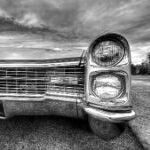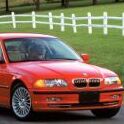By William Maley
Staff Writer - CheersandGears.com
February 5, 2013
The trend of automakers downsizing engines and adding turbochargers to add performance and increase fuel economy has drawn the ire of Consumer Reports.
The publication recently tested eleven different vehicles and found that with rare exception, “the turbocharged cars have slower acceleration and no better fuel economy than the models with bigger, conventional engines.”
Consumer Reports highlights the Ford Fusion which can come equipped with either an optional 1.6L or 2.0L EcoBoost turbocharged four-cylinder. In CR's testing, the 1.6L EcoBoost Fusion posted the slowest 0-60 MPH of 8.9 seconds among competitors with naturally aspirated engines: Kia Optima (8.6), Hyundai Sonata (8.4), Honda Accord (8.2), Nissan Altima (8.2) and Toyota Camry (7.7).
The 1.6L EcoBoost didn't fare any better when it came time for fuel economy as it scored the lowest as-tested combined number of 25 MPG. The Nissan Altima delivered the best with 31 MPG, followed by the Honda Accord and Toyota Camry with 30.
Similarly, the 2.0L EcoBoost Fusion posted the lowest combined fuel economy number of 22 MPG when compared to rivals with V6s: Toyota Camry and Honda Accord (26) and Nissan Altima (24). As for 0-60 run, the 2.0L posted the slowest time of 7.4 seconds. The Toyota Camry, Nissan Altima, and Honda Accord were about a second faster.
CR also highlights the Chevrolet Cruze when equipped with the 1.4L turbo-four. While the 1.4 turbo is quicker than the 1.8L by about 0.8 to 60 MPH, the two got the same 26 MPG combined average during testing.
Source: Consumer Reports, Los Angeles Times
William Maley is a staff writer for Cheers & Gears. He can be reached at [email protected] or you can follow him on twitter at @realmudmonster.








-3707742431.jpg.06edf8e14f4ccf35c60d4774a543cc11.jpg)


Recommended Comments
Join the conversation
You can post now and register later. If you have an account, sign in now to post with your account.
Note: Your post will require moderator approval before it will be visible.